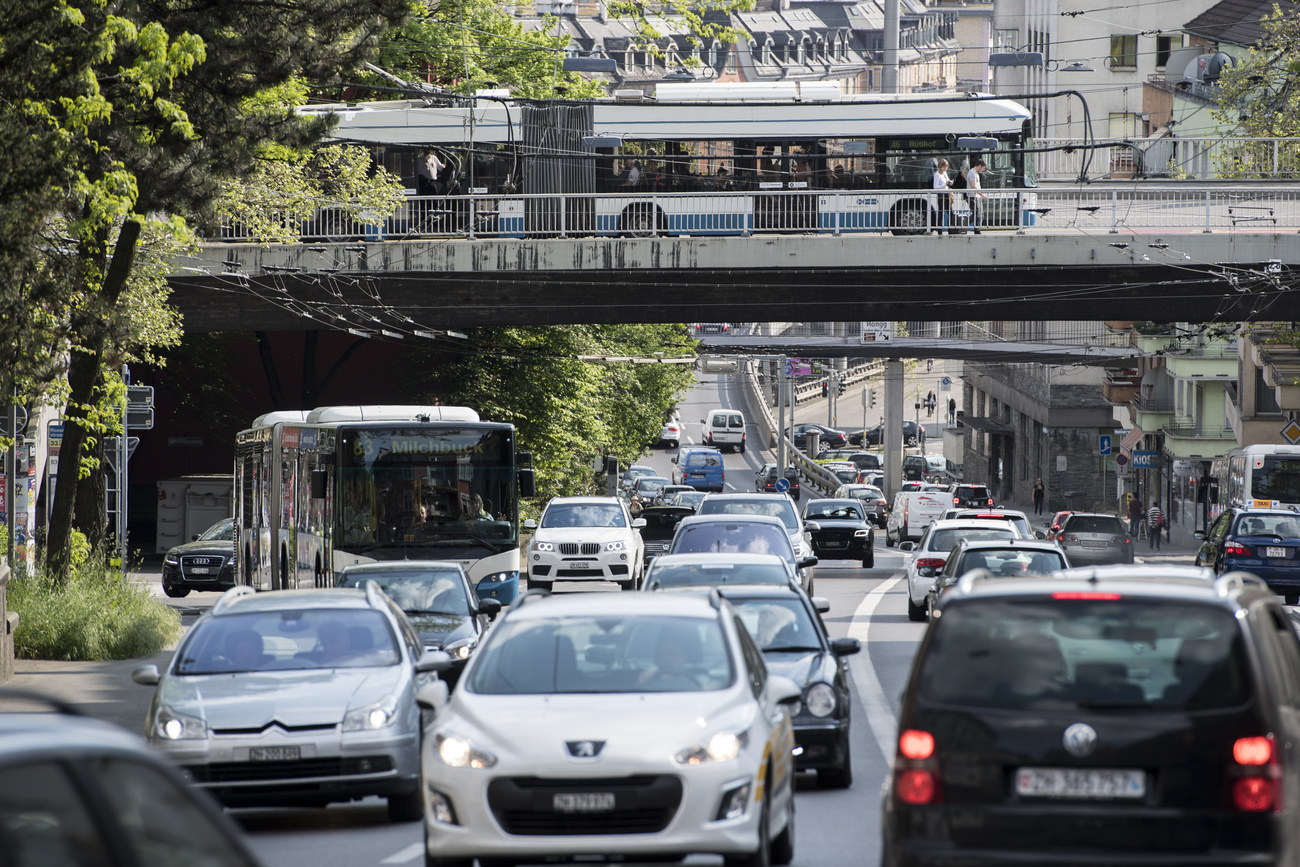
Switzerland sets out revised C02 law plan

Following the rejection of a proposed climate law last year, the Swiss government has mapped out new changes to the legislation.
The new C02 law strips out unpopular tax and levies that saw the downfall of the last proposal at the ballot box.
The new draft “dispenses with new taxes and instead relies on effective incentives that are supplemented by targeted subsidies and investments,” it was announced on Friday. The objective is to halve greenhouse emissions by 2030 compared to 1990.
“At the same time, the proposal strengthens Switzerland’s energy supply and reduces Switzerland’s dependence on oil and natural gas.”
The government wants to invest CHF4.1 billion ($4.26 billion) on renovating buildings, modernising the transport infrastructure and other measures between 2025 and 2030.
Some of the money will be spent on building out a network of electric charging points for vehicles and upgrading public transport fleets with more sustainable vehicles.
A tax levied on fossil fuels will stay at CHF120 per tonne of C02, with around half the revenues being invested into green technology projects, such as geothermal energy or biogas.
The law would also oblige car importers to sell fewer gas guzzling vehicles with emissions rules being tightened up for transport. Earlier this week, Switzerland’s largest car importer, AMAG said it would phase out fossil fuel vehicles by 2040.
Aircraft fuel sold in Switzerland will have to contain a mix of renewable ingredients.
Political reaction
All companies would get C02 tax reductions if they reduce emissions, rather than the current system of limiting exemptions to specific sectors.
Two-thirds of emissions reductions should take place within Switzerland and a further third could be offset by investing in green projects abroad.
The Green Party slammed the proposals as being weak. “The government’s proposals lack courage and the means to promote climate protection are completely inadequate.
Switzerland can and must do more for the climate,” it said.
The rightwing People’s Party accused the government of “flying blind” in its climate police and for “muddled” thinking.
The centre political parties were broadly supportive of the proposed measures.

In compliance with the JTI standards
More: SWI swissinfo.ch certified by the Journalism Trust Initiative





























You can find an overview of ongoing debates with our journalists here . Please join us!
If you want to start a conversation about a topic raised in this article or want to report factual errors, email us at english@swissinfo.ch.